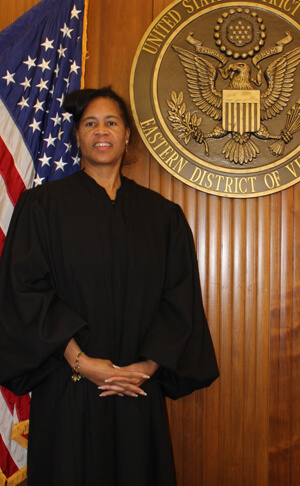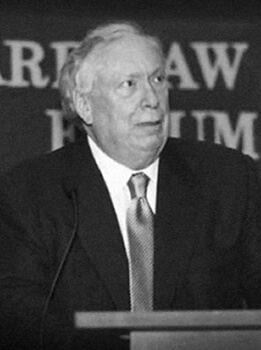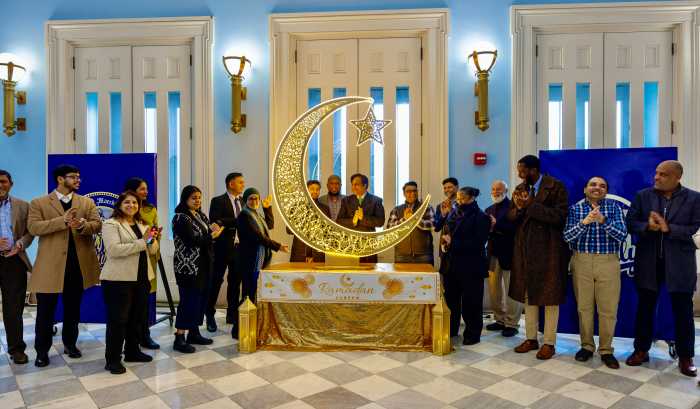The Alaska Supreme Court, in a unanimous decision, has found that same-sex couples there are entitled to the same real estate tax break under state law given to married couples, despite Alaska’s marriage amendment, which provides that same-sex marriages are neither legal nor recognized there.
The April 25 ruling, which held that nothing in the amendment prevents same-sex couples from receiving the tax break, was, the court said, a straightforward application of a 2005 ruling in a case brought by the Alaska Civil Liberties Union, which concluded that committed same-sex couples were entitled to the same state and local government employee benefits as married employees.
High court says marriage amendment no hindrance
The Alaska Constitution’s ban on same-sex marriage and its recognition, the court has found, was not proposed to relieve the state of its equal protection obligations to all its citizens, but only to provide that same-sex marriages would not be legal. Crucially, the amendment, unlike marriage bans adopted in a good number of other states, does not forbid Alaska from extending rights and benefits associated with marriage to same-sex couples — only the name marriage itself.
The key to both decisions, as articulated in this case by Senior Justice Robert Ladd Eastaugh, was in how the equal protection question is framed. Equal protection analysis asks first whether two similarly situated groups are being treated in a different way and, if so, whether such different treatment is justified by a legitimate state interest.
When LGBT plaintiffs first started litigating equal benefits claims back in the 1970s and ‘80s, courts would dismiss them by saying that unmarried same-sex couples are similarly situated with unmarried different-sex couples. If unmarried different sex-couples were not entitled to a benefit, there was no discrimination from denying it to same-sex couples. All unmarried couples, in such an analysis, were treated the same.
As the earlier ruling made clear, however, that changed when the State Constitution specifically barred same-sex marriage, thereby creating an inequality. An unmarried different-sex couple could marry in order to get a benefit denied them while unmarried. Same-sex couples did not have the same option, the court found in 2005.
As a result, the state now faces the burden of showing why a benefit in question should not be afforded equally to same-sex couples and married different-sex couples.
The key advantage of this perspective for same-sex couples seeking a particular benefit is that they need not prevail against the Alaska marriage amendment — which they can only do by invoking the US Constitution, since it is already part of the State Constitution — in order to win their argument. In the case decided this month, the state had the burden of showing that there was a policy justification for premising a property tax exemption available to senior citizens and disabled veterans on marital status.
Alaska was unable to meet that burden.
As explained in Justice Eastaugh’s opinion, under the tax benefit program, the first $150,00 of assessed value on a residence is exempted from municipal property taxation if an owner is a senior or a disabled veteran. The full exemption, however, is not available if the qualified individual owns the property with someone who is not their spouse.
Contending that the exemption program violates their rights to equal protection and equal opportunities, three Anchorage same-sex couples in committed relationships sued the State of Alaska and the City of Anchorage. In all three cases, only one of the two members of the couple qualified as a senior citizen or as a disabled veteran, and so each was allowed a tax exemption on only $75,000 of the assessed valuation. Had they been married, they would have received the full exemption, even if their spouse did not qualify. The three couples all prevailed in the superior court, and the two defendants appealed.
The high court ruled in favor of two of the three couples, both of which owned their homes jointly as tenants in common. The lower court, however, was found to have erred in the case of the third couple, in which only one of the partners, who was neither a senior citizen nor a disabled veteran, was the property’s sole owner.
In judging whether the discriminatory treatment of the two same-sex couples who jointly owned their property could be justified, the high court acknowledged that the state and city’s reliance on administrative cost savings was a “legitimate” end, but held that the distinction the policy made “is not substantially related to those interests.” The savings sought, the court found, “alone are not sufficient government objectives under our equal protection analysis… the government can adequately protect its tax base and minimize cost without discriminating between similarly situated classes.” The defendants argued that it was costly to determine if the same-sex plaintiffs actually qualified — as committed couples “similarly situated” to married couples — but the court noted that “the state allows married couples to establish eligibility for the exemption merely by making a sworn statement.” The same evidence should suffice for same-sex couples.
The Supreme Court also rejected the justification that providing the exemption for married couples was intended to promote marriage, saying it could not see how denying the exemption to same-sex couples promotes that goal.
“The State has not explained how denying benefits to couples who cannot marry will promote marriage in couples who can,” wrote Eastaugh, in an assessment that could well be applied to the ban on same-sex marriage itself. “We assume, as the couples argue, that giving the full benefit only to married couples will not encourage same-sex domestic couples to leave their partnerships and enter into heterosexual relationships with an intention to marry.”
Based on these conclusions, the court held that “the exemption program fails minimum scrutiny and violates these couples’ rights to equal protection.”
The plaintiffs are represented by David Oesting and Roger Leishman of the Davis Wright Tremaine firm in Anchorage, and attorneys Thomas Stenson and Leslie Cooper appearing on behalf of the ACLU of Alaska Foundation.



































